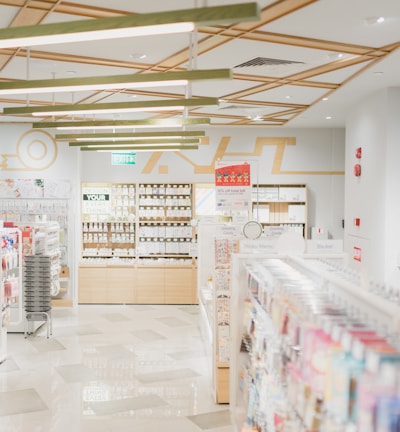For Questions: Text (833)233-0869
Best Clinic on Depression Treatment in ARKANSAS Through TELEHEALTH
Opioid addiction is a serious public health crisis affecting millions of Americans, including residents of Arkansas. The state has seen a significant rise in opioid use disorder (OUD) cases, leading to an urgent need for effective, science-backed treatments. One of the most promising and widely used treatments is Suboxone. Suboxone, a medication-assisted treatment (MAT), has proven to be a lifesaver for many individuals battling opioid addiction. This article provides an in-depth look at a leading Suboxone clinic in Arkansas, highlighting the critical role of Suboxone treatment and the various services offered to those in need.




What is Suboxone?
Suboxone is a prescription medication that combines two active ingredients: buprenorphine and naloxone. Buprenorphine is a partial opioid agonist that helps reduce cravings and withdrawal symptoms, while naloxone is an opioid antagonist that helps prevent misuse. Together, these components make Suboxone a powerful tool in the treatment of opioid addiction.
Pricing
New Patients $166
Returning Patients $156
Benefits of Suboxone Treatment
Reduction in Cravings: Suboxone helps to manage the intense cravings that often accompany opioid addiction, making it easier for individuals to stay committed to their recovery.
Decreased Withdrawal Symptoms: One of the biggest challenges in overcoming opioid addiction is managing withdrawal symptoms. Suboxone alleviates these symptoms, providing a more comfortable and sustainable path to recovery.
Lower Risk of Misuse: The presence of naloxone in Suboxone discourages misuse, as it blocks the euphoric effects of opioids.
Why Choose a Suboxone Clinic in Arkansas?
When it comes to opioid addiction treatment, choosing the right clinic is crucial. Arkansas residents looking for a “Suboxone clinic near me” need a facility that offers not just medication but comprehensive care tailored to their specific needs.
Expertise and Compassionate Care
The Suboxone clinic in Arkansas is staffed by a team of experienced and compassionate healthcare professionals who specialize in addiction treatment. These doctors understand the complexities of opioid addiction and are committed to providing personalized care. They work closely with each patient to develop a treatment plan that addresses both the physical and psychological aspects of addiction.
Accessible Suboxone Treatment Near You
One of the most significant advantages of this Arkansas-based Suboxone clinic is its accessibility. With multiple locations across the state, finding a “Suboxone clinic near me” is easier than ever. The clinic's goal is to ensure that everyone, regardless of their location, has access to high-quality, effective treatment.
Comprehensive Suboxone Treatment in Arkansas
Personalized Treatment Plans
At this Arkansas Suboxone clinic, treatment begins with a thorough evaluation to assess each patient's unique needs. This assessment includes a detailed medical history, a discussion of the patient's addiction history, and an evaluation of any co-occurring mental health conditions. Based on this information, the clinic's doctors develop a personalized treatment plan that may include Suboxone, counseling, and other supportive services.








Not to mention
Effective Treatment for Clinical Depression
Our clinic offers comprehensive treatment for clinical depression including medication and psychotherapy. Our experienced team of professionals will work with you to create a personalized treatment plan to help you feel better and get back to doing the things you love.


And let's not forget
Signs of Clinical Depression
Clinical depression can cause a persistently low or depressed mood, a loss of interest in activities, changes in appetite and sleep patterns, fatigue, difficulty concentrating, and feelings of worthlessness or guilt. If you experience these symptoms for at least two weeks, it's important to seek help from a medical professional.
Counseling and Behavioral Therapy
While Suboxone is a critical component of treatment, it is most effective when combined with counseling and behavioral therapy. The Arkansas clinic offers both individual and group counseling sessions led by licensed therapists who specialize in addiction treatment. These sessions help patients address the underlying issues contributing to their addiction, develop coping strategies, and build a support network.
Ongoing Support and Monitoring
Recovery from opioid addiction is a long-term process that requires ongoing support. The Arkansas Suboxone clinic offers continuous monitoring and support to ensure patients stay on track. Regular follow-up appointments allow doctors to adjust treatment plans as needed and provide encouragement and motivation.
Telehealth Services for Convenient Access
In addition to in-person visits, the clinic offers Suboxone telehealth services, allowing patients to receive treatment from the comfort of their own homes. This is particularly beneficial for those living in rural areas or those with mobility issues. Through telehealth, patients can have virtual appointments with their doctors, access counseling services, and receive prescription refills without needing to visit the clinic in person.
The Role of Suboxone Clinic Online Services
The clinic's commitment to accessibility extends to its online services. For those searching for a “Suboxone clinic online,” this Arkansas facility offers a robust online platform that facilitates remote care. Patients can schedule appointments, communicate with their healthcare providers, and access educational resources about opioid addiction and Suboxone treatment.
Online Resources and Support
The clinic's website is a valuable resource for anyone seeking information about Suboxone treatment. It features detailed articles, FAQs, and patient testimonials that provide insight into the treatment process and what to expect. Additionally, the clinic's online platform offers support group resources, where patients can connect with others in recovery.
The Convenience of Online Appointments
Online appointments make it easier for patients to stick to their treatment plans. With the flexibility to meet with their doctor from anywhere, patients can more easily balance treatment with their daily responsibilities. This convenience is particularly important for individuals who may have work or family obligations that make in-person visits challenging.
Why Arkansas Residents Should Consider Suboxone Treatment
Arkansas, like many states, has been significantly impacted by the opioid crisis. The state's rural areas, in particular, have seen a rise in opioid use disorder cases, with limited access to treatment facilities exacerbating the problem. For those in need, finding a reliable Suboxone clinic near me can be a crucial step toward recovery.
A Statewide Commitment to Recovery
The Arkansas Suboxone clinic is part of a broader effort to combat opioid addiction across the state. By offering both in-person and online services, the clinic is helping to make treatment more accessible to all Arkansas residents. Whether you live in Little Rock, Fayetteville, or a more rural area, the clinic's comprehensive services are within reach.
Success Stories and Testimonials
The effectiveness of Suboxone treatment is reflected in the success stories of patients who have overcome addiction with the help of the Arkansas clinic. Many patients report significant improvements in their quality of life, with reduced cravings, better mental health, and the ability to rebuild relationships and careers.
A Holistic Approach to Addiction Treatment
What sets the Arkansas Suboxone clinic apart is its holistic approach to addiction treatment. Recognizing that addiction is not just a physical dependency but also a mental and emotional struggle, the clinic offers a range of services designed to address all aspects of recovery. From medication management to counseling and support groups, the clinic provides the tools and resources necessary for long-term success.
Conclusion: Take the First Step Toward Recovery
If you or a loved one is struggling with opioid addiction, seeking help is the most important step you can take. The Suboxone clinic in Arkansas offers the comprehensive, compassionate care needed to overcome addiction and reclaim your life. With a focus on personalized treatment, accessible services, and ongoing support, this clinic is a beacon of hope for those in need.
Don't wait to start your journey to recovery. Contact the Arkansas Suboxone clinic today to schedule a consultation and learn more about how Suboxone treatment can help you achieve lasting sobriety.
What are the 4 main causes of depression?
The four main causes of depression are genetic factors, brain chemistry imbalances, life stressors, and certain medical conditions. While genetics may predispose someone to developing depression, research suggests that environmental factors such as significant life events or chronic stressors can trigger depressive episodes. Brain chemistry imbalances, specifically imbalances in serotonin and dopamine levels, can also contribute to depression symptoms. Additionally, medical conditions such as hypothyroidism or chronic pain can increase the risk of developing depression. It is important for individuals experiencing depressive symptoms to seek professional assessment and care to determine the underlying cause(s) of their depression and develop an effective treatment plan.
Depression is a complex condition that can develop from a combination of multiple factors. Here is an expanded explanation of the four main causes of depression:
Genetic Factors: Depression can run in families, and studies have suggested that genetic factors contribute to approximately 40% of the risk for developing depression. Specific genes related to mood regulation, stress response, and serotonin and dopamine neurotransmitter function have been identified in some individuals with depression.
Brain Chemistry Imbalances: Imbalances in brain chemicals, such as serotonin and dopamine, are thought to play a significant role in depression. These neurotransmitters help regulate mood, energy, and motivation. When there is a chemical imbalance, it can lead to feelings of sadness, hopelessness, and anxiety. Medications that target these neurotransmitters, such as antidepressants, can be effective in treating depression symptoms.
Life Stressors: Traumatic experiences, significant life events, and chronic stressors can trigger depression symptoms. Examples may include losing a loved one, financial difficulties, relationship conflicts, a major illness, or even academic pressure. Chronic stressors, such as prolonged exposure to work-related stressors or caregiving responsibilities, can also contribute to depression.
Medical Conditions: Some medical conditions, such as thyroid disorders, chronic pain, or other chronic medical illnesses, can increase the risk of developing depression. Chronic conditions that interfere with daily functioning or require long-term treatment can be particularly challenging and lead to feelings of depression.
It is important to note that not everyone who experiences these factors will develop depression. Some individuals may have genetic risk factors but never develop depression, while others may develop depression in response to life stressors without any genetic predisposition. Other factors that can contribute to depression may include substance abuse, certain medications, or underlying mental health conditions, such as anxiety or substance use disorders.
If you are experiencing symptoms of depression, it is essential to seek help from a healthcare provider or mental health professional. There are many effective treatment options available, including talk therapy, medications, and lifestyle modifications such as exercise and wellness practices, that can help improve mood and quality of life.
What are the main 3 symptoms of depression?
The main three symptoms of depression are persistent feelings of sadness or hopelessness, loss of interest in activities that were once enjoyable, and decreased energy or fatigue. Additional symptoms may include changes in appetite or sleeping patterns, difficulty with concentration or decision-making, feelings of worthlessness or guilt, and thoughts of self-harm or suicide. It's important to remember that symptoms can vary for each individual and that depression is a treatable condition with the help of a mental health professional.Other symptoms of depression may include changes in appetite or sleeping patterns, difficulty with concentration or decision-making, feelings of worthlessness or guilt, and thoughts of-harm or suicide. If you or someone you know is experiencing symptoms of depression, it's important to seek help from a mental health professional. Depression is a treatable condition, and many people find relief with the help of therapy, medication, or a combination of both.
Depression is a mental disorder that affects a person's mood, thoughts, and behaviors. While the experience of depression can be different for each individual, there are some common symptoms that people may experience.
Persistent feelings of sadness or hopelessness: One of the most common symptoms of depression is a persistent feeling of sadness or emotional numbness. This can be a feeling of being down or "blue" that doesn't go away, or it can feel like a heavy weight that's always present.
Loss of interest in activities that were once enjoyable: Another common symptom of depression is a loss of interest in activities that a person used to enjoy. This can include hobbies, social events, and other activities that previously brought the person happiness or pleasure. This loss of interest can make it difficult for people to engage in their daily lives and maintain relationships.
Decreased energy or fatigue: Depression can also lead to a feeling of low energy or fatigue. Everyday tasks may feel overwhelming or exhausting, and it can be difficult to motivate oneself to complete them. This can lead to a cycle of avoidance and self-isolation, which further exacerbates feelings of sadness and hopelessness.
Depression Questions
What is done for depression?
Depression can be treated with a variety of interventions, including:
Psychotherapy, such as cognitive-behavioral therapy (CBT) or interpersonal therapy (IPT). 2.ation, such as selective serotonin reuptake inhibitors (SSRIs) or other antidepressants.
Lifestyle changes, such as regular exercise, healthy eating, and stress reduction activities.
Support groups or self-help programs.
Alternative therapies, such as acupuncture or meditation.
It's important to seek help from a mental health professional if you are experiencing symptoms of depression. They can help you choose an appropriate treatment plan that fits your individual needs and circumstances.
Psychotherapy: Psychotherapy involves talking with a mental health professional to identify and address the sources of depression. Cognitive-behavioral therapy (CBT) is a type of psychotherapy that focuses on identifying distorted thinking patterns and replacing them with more positive and accurate ones. Interpersonal therapy (IPT) is another form of psychotherapy that helps people improve their relationships and communication skills. Other types of therapy may also be beneficial for depression, such as psychodynamic therapy or mindfulness-based therapies.
Medication: Antidepressant medications can help alleviate symptoms of depression by altering the levels of neurotransmitters (chemical messengers in the brain) that affect mood. SSRIs, such as sertraline (Zoloft) or fluoxetine (Prozac), are commonly prescribed antidepressants. Other types of antidepressants include tricyclics, monoamine oxidase inhibitors (MAOIs), and atypical antidepressants. It is important to note that medication may not work for everyone and should always be supervised by a healthcare provider.
Lifestyle changes: Making lifestyle changes also help alleviate symptoms of depression. These changes may include regular exercise, healthy eating, getting enough sleep, and reducing stress through relaxation techniques. In some cases, addressing substance abuse or other unhealthy behaviors may also be necessary.
Support groups or self-help programs: Support groups or self-help programs, such as group therapy or 12-step programs, can provide emotional support and strategies for coping with depression. They can also help individuals feel less isolated and more connected to others who are going through similar experiences.
Alternative therapies: There are a variety of alternative therapies that may be helpful for depression, such as acupuncture or meditation. However, there is limited scientific research to support the effectiveness of these treatments, so it is important to speak with a healthcare provider before trying them.
It's important to remember that depression is a complex condition that can affect individuals in different ways. Treatment for depression often involves a combination of the above approaches, and it may take some time to find the right combination of therapies that works for the individual. Anyone experiencing symptoms of depression should seek help from a mental health professional.
Take the first step to feeling better
Quality, not quantity
We have made quality our habit. It’s not something that we just strive for – we live by this principle every day.
©2025
Clinical Depression
For Questions: Text
(833) 233-0869
